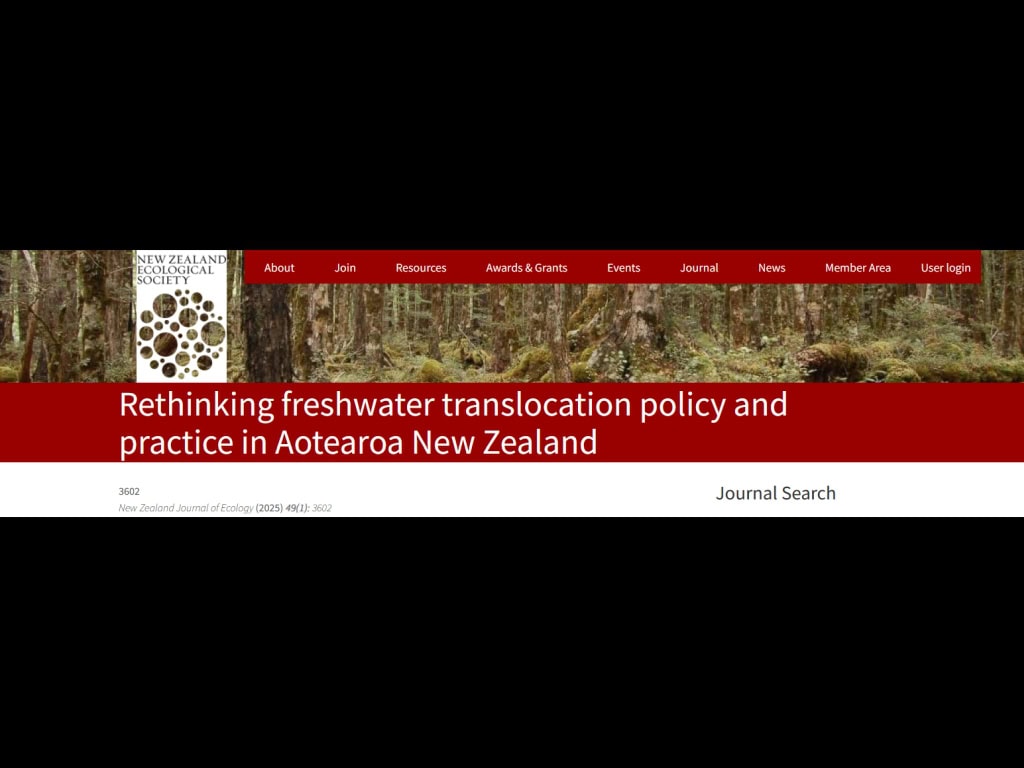A landmark study just published in the New Zealand Journal of Ecology by a large Fish Futures’ team and collaborators calls for a wholesale rethink of how Aotearoa New Zealand authorises, manages, and monitors how people move native freshwater fish and invertebrates.
The authors identify three shifts that would unlock the full ecological and cultural potential of freshwater translocations:
- Joined-up authorisation and governance – streamline permits and align the patchwork of legislation that currently spans conservation, fisheries, and regional planning.
- Inclusive decision-making – front-load translocation planning with mana whenua, local communities, and sector stakeholders so that who decides and how decisions are made are transparent and Treaty-honouring.
- Consistent monitoring and reporting – adopt nationwide standards for tracking ecological outcomes and cultural aspirations, so successes and lessons are shared rather than lost.

